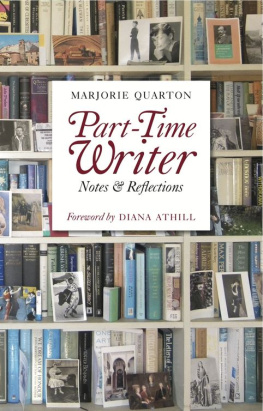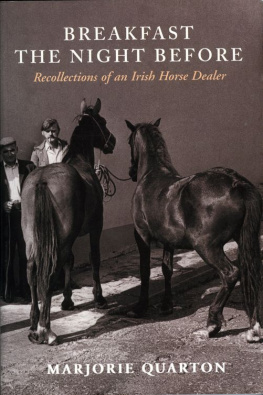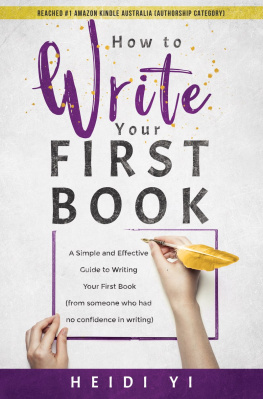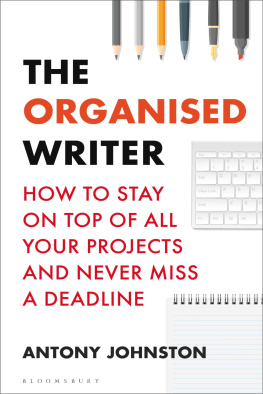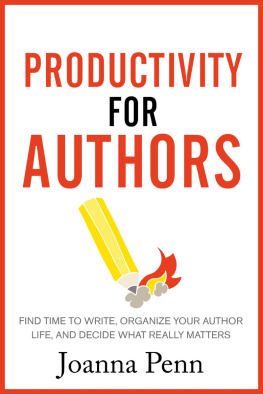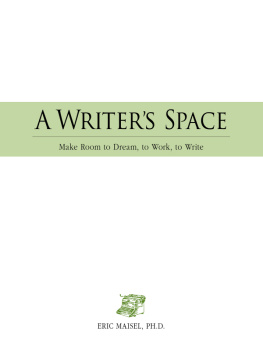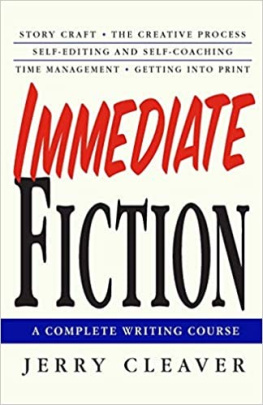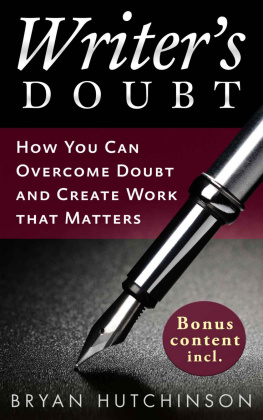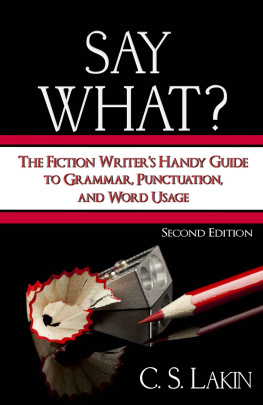I cant claim to be writing this foreword in an impartial frame of mind. I once had the good fortune to be Marjorie Quartons publisher so I came to know her, and to know her is to admire and like her, so I expected in advance to admire Part-Time Writer. I am, however, speaking the plain truth when I say that now, having read it, I admire it even more. I cant imagine a more sensible and helpful guide for the would-be writer, part-time or not.
Marjorie has turned her hand to many things, all of which she has done well. She has bought and sold horses, bred and trained sheepdogs, farmed sheep, been an antique dealer, run a charity and in addition to all this has herself been a successful part-time writer who has helped other part-time writers towards success by running classes and by undertaking the editing of their work. It is from those last two parts of her career that she draws the wisdom and common sense that make this book so valuable.
It also reminds me of why I came to like Marjorie so much. There is no nonsense about it, and much wit and warmth, and it is also often very funny see the section on sex and violence in chapter 9. In fact, that chapter is a good example of the books unusual quality as a whole. The touch is light, but what is being said is profoundly true . Although Marjorie is often downright hard-headed about the practicalities of writing, she never takes the art less than seriously: she thinks it silly to write and then fail to do the best you can to present what you have written to readers, but at the same time she never doubts that writing is worth doing well for writings sake. Her book will not only help people sell their work, it will also make them better writers. I think it will have a long and useful life.
I became a writer by accident. I slunk into writing by the back door. It would never have been possible for me to become a full-time author or journalist, because I am not and never was one of those who command six-figure advances and royalty cheques. Even if I were, I believe I would tire of authorship as a profession . The thought of sitting at a desk for a fixed number of hours every day fills me with a mixture of horror and boredom.
It is a fine thing to be able to describe yourself honestly as a writer, to know that you are one of a minority, in a profession generally admired and often envied. There is a thrill in seeing your name in print for the first time. (I dont count wild promises from Readers Digest and the like: You are a winner Mrs Quarton!!!) I hope to show that you can achieve these things while being a part-time writer, practising an enjoyable hobby and collecting an equally enjoyable second income.
I come from a literary background and my mother urged me to write a book when I was too young to have anything to write about. She mentioned Ernest Thomson Seton, the naturalist and writer, and his daughter, novelist Anya Seton. They were my relatives, as were Henry Seton Merriman, a fashionable author in the early 1900s, and Edith Somerville, a cousin. Of course you could write a book, said my mother, aunts and cousins. My aunt, Evelyn Brodhurst Hill, wrote two successful books about Kenya and many articles for The Spectator in days when women who wrote political articles were scarce and treated with some suspicion. She used the painful nom de plume Eve Bache.
I wasnt encouraged; I was alarmed. I felt I couldnt possibly measure up to my familys expectations. But still, I suppose a seed had been sown. I was over fifty when it finally germinated and I began, almost stealthily, to write.
I admit I was mainly motivated by money. In the 1970s, farming had improved, but drystock farming in Ireland was never a road to wealth. More importantly, two of our best sources of cash had dried up. Owing to the war in Northern Ireland, the British police forces were buying their remounts elsewhere and, even worse for us, the Swiss Cavalry had taken to motorbikes. Until then, our horse population had fluctuated between six and thirty and looking after them had been a full-time occupation on its own. We also had a kennel of working dogs and quantities of cattle and sheep. Write a book? When? How?
I had already offered an article about working dogs to Irish Farmers Journal and had in exchange been offered 25 a week for a series of six. 150 would have bought a decent bullock . I was amazed. But I knew that specialized subject well, and the average farmer did not. So the work prospered and I did another series at 40.
What else did I know about? Horse fairs. I turned to The Irish Field and had a winter column with them for eight years. Later, I wrote books about working dogs and horse fairs, made money and learned that the pitfalls that face the specialist animal writer are deep and hard to climb out of. I had, however, taken the initial plunge, was known and accepted as a writer, and could risk asserting myself.
The first part of this book concerns fiction and I was never crazy enough to imagine that I could dash off a novel and expect anyone to publish it. But I used to take the magazine Working Sheepdog News, and send the occasional report. The editor asked readers to supply ideas for something to boost readership and wrote to me among others. The magazine was excellent of its kind, though in most families only the enthusiast was likely to read its worthy and solemn pages. I contributed a bit of nonsense called Sheep at the Sheepdog Trial, and it was so well received that I continued, encouraged by delighted phone calls and letters from people wanting More about Irish sheep.
They got it. I wrote and wrote and found my little stories turning into a little book. Ill go back to those heady days later on. Heady, even though the magazine didnt pay me until years later. Once I had started to write fiction, ideas crowded my mind and I went about my work in a trance. Sometimes I asked myself why I had suddenly developed an urge to write; why I had imaginary people crowding my brain, waiting to have their stories put down on paper, why their doings were suddenly of importance, so that I felt obliged to write them down. They wouldnt leave me alone.
Many years later I gave a talk entitled, Should I Write a Novel? If so, how do I start? Well, should you? If it clamours in your brain, demanding that you do something about it, then yes, you should.
For the past twenty-five years, I have been a part-time writer, combining it first with farming, horse dealing and dog breeding, later with a full-time PR job with a charity. I have never felt the urge to be a full-time writer, because I would feel pressure to achieve and nervousness about earning a living from it. I prefer to do what I can in my own time.
Theres nothing wrong with working full-time as journalist or author. My warning is not to give up the day job until you are sure you wont regret it. When you have enough work on hand to give it all your time and attention and make a decent living as well, you can consider whether this is what you want or not.
When you give up work and start writing to a schedule, so many hours a day, will you still find fresh ideas? A life measured by deadlines is okay if you like your time to be ordered. If not, you might find the necessity of finishing a book, and starting another in order to keep a contract, mind-numbing. Writing should be a portable profession. Do you really want to turn your home into an office? Maybe you do, but working from home can be lonely and its hard to discipline yourself when those fascinating ideas have dried up. Given that you cant just go away, shut the door and take a holiday, you might easily find that your new career was not a good idea. Not if you need to earn a living.

